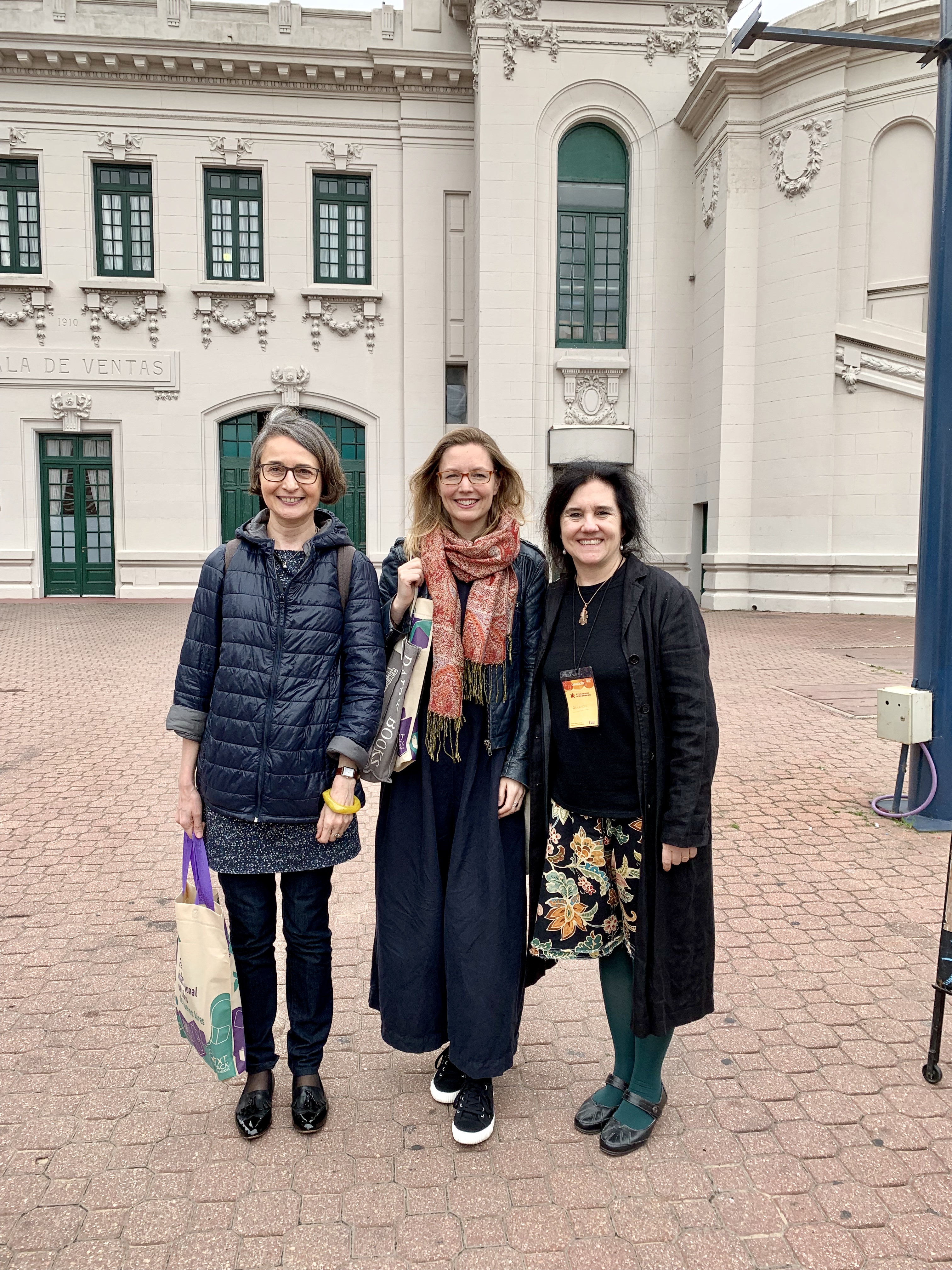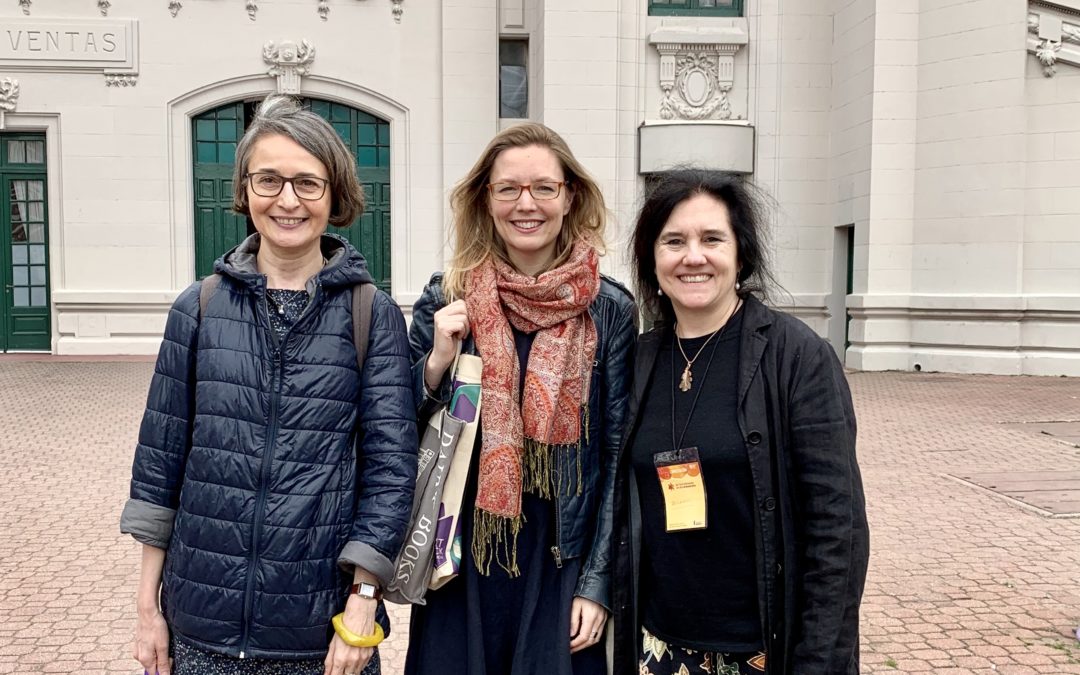Katia Pizzi reports on her trip to Buenos Aires in April 2019.
In 2001, the Argentinian government approved a law granting the title of ‘site of memory’ to sites that operated as clandestine detention centres prior to 1983. Memories of disappearance, genocide and displacement of people in Latin America and the world over sparked off a rich discussion before a large audience in the evening of 22 April at the Library of MALBA (Museo de Arte Latino Americano de Buenos Aires). This meeting was part of a week-long series of activities organised by the Autumn Translation School in Buenos Aires (21-28 April 2019; project Literary Translation Workshops: Bridging Communities led by Cecilia Rossi of the British Centre for Literary Translation at the University of East Anglia) funded by AHRC-OWRI-Cross-Culture Dynamics: Reshaping Community (CLDRC)

Pizzi, Orr and Rossi at Buenos Aires, Feria del Libro 2019
Mónica Szurmuk chaired the meeting. Katia Pizzi (Institute of Modern Languages Research, School of Advanced Study, University of London) kicked off the evening. ‘Languages’, she said, ‘are instruments of communication. Languages, however, can also be instruments of exclusion. Our languages and our bodies help us make sense of the world but it is memory that gives the world meaning.’ Pizzi proceeded to present a pertinent case study: in the cultural and literary region at the northeastern borders of Italy memories are historically divided and ‘fractured’ (Foot 2009) along national, social and ethnic lines. Here, dialogical and ‘translational’ practices (Gramsci 1971) are ‘difficult, if not outright impossible’ (Pizzi 2013).
Creative authors Gianna Molinari (Switzerland), Cynthia Rimsky (Chile) and Katherine J. Orr (United Kingdom) addressed salient themes, e.g. silences tripping up the construction of memorial narratives; gaps of memory and identity and constructions of memory of the ‘desaparecidos’ through conscious and unconscious practices (see Orr’s monologue ‘Disappearances’, winner of the BBC Short Story prize 2016). Molinari rounded up the discussion introducing the audience to the protagonist of her novel Hier ist noch alles mőglich (winner of the Robert Walser prize 2018). A man ‘fallen from the sky’, he epitomises all refugees without papers, without a name, without an identity.
Details and pictures:
See also an extensive account in the press: March Mazzei, ‘Refugios, exilios y migraciones copan la ficción’ in Revista Ñ 27 April 2019, rubric ‘Flora y fauna’ [see https://www.pressreader.com/)
Katia Pizzi, London, 8 June 2019

